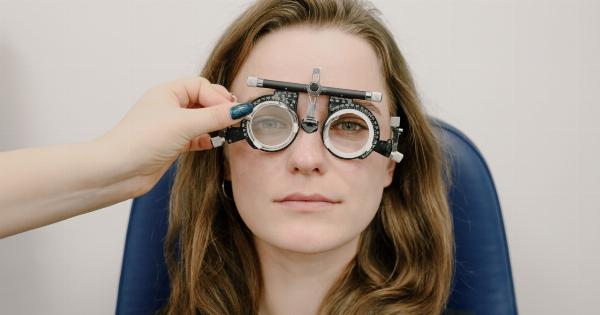Choosing the right doctor is crucial as it directly impacts the quality of care you receive. However, it is equally important to understand when doctors provide the best care to ensure you have optimal healthcare experiences.
Several factors contribute to when doctors are at their best, including the doctor-patient relationship, effective communication, accessibility, experience, and ongoing education.
The doctor-patient relationship
One of the key factors that determine when doctors provide the best care is the strength of the doctor-patient relationship. A positive and trusting relationship fosters open and honest communication between doctors and patients.
Doctors who can establish a good rapport with their patients are more likely to provide comprehensive and patient-centered care. This relationship creates an environment where patients feel comfortable sharing their concerns, experiences, and symptoms, enabling doctors to make accurate diagnoses and develop effective treatment plans.
Effective communication
Clear and effective communication is paramount in healthcare. When doctors communicate well with their patients, it leads to better care outcomes.
Doctors who actively listen, ask relevant questions, and explain medical information in a way that patients can understand, help patients feel in control of their health. Patients who comprehend their conditions and treatment plans are more likely to adhere to recommended therapies, leading to improved health outcomes.
Accessibility
Doctors who prioritize accessibility provide a higher standard of care.
Accessibility encompasses both physical accessibility, such as the availability of appointments and proximity to healthcare facilities, as well as communication accessibility, such as timely responses to patient queries. Doctors who are accessible make it easier for patients to seek medical advice, get timely check-ups, and obtain necessary follow-up care. This accessibility ensures that patients receive the care they need when they need it.
Experience and expertise
Another crucial factor contributing to when doctors provide the best care is their experience and expertise. Doctors who have years of experience and specialize in specific areas of medicine can offer a higher level of care.
Experience enhances a doctor’s ability to diagnose complex conditions accurately and develop appropriate treatment plans. Furthermore, experienced doctors are often more adept at identifying potential complications and providing preventive care strategies.
Ongoing education and staying current
In the rapidly evolving field of medicine, doctors must continuously update their knowledge and skills through ongoing education and staying current with medical advancements.
Doctors who remain up-to-date with the latest research and treatment modalities can provide patients with evidence-based care. By staying current, doctors can implement innovative techniques, utilize new technology, and offer the most effective treatments available.
Adequate time for patient appointments
Providing adequate time for patient appointments is crucial for doctors to deliver the best care. When doctors are pressed for time, they may rush through appointments, leading to overlooked symptoms, incomplete assessments, and missed diagnoses.
On the other hand, doctors who allocate enough time for each patient can conduct thorough examinations, discuss concerns, answer questions, and develop personalized treatment plans. Sufficient appointment durations allow doctors to provide comprehensive care and ensure that patients feel valued and heard.
A culture of empathy and compassion
Doctors who approach their practice with empathy and compassion create an environment conducive to the best care.
Medical conditions can be anxiety-inducing and stressful for patients, and doctors who show empathy and understanding can alleviate patient fears and anxieties. Compassionate doctors are more likely to consider the emotional and psychological aspects of a patient’s well-being alongside their physical health, resulting in more holistic and patient-centered care.
A multidisciplinary approach
Collaboration and a multidisciplinary approach play a significant role in providing the best care.
Doctors who work collaboratively with other healthcare professionals, such as nurses, specialists, and therapists, can provide integrated and well-coordinated care. This approach ensures that patients receive comprehensive treatment plans that address all aspects of their health. By involving multiple perspectives and expertise, doctors can optimize patient outcomes and improve overall healthcare quality.
Adherence to medical ethics
Doctors who strictly adhere to medical ethics are more likely to provide the best care. Ethical guidelines ensure that doctors prioritize patient well-being, maintain confidentiality, respect autonomy, and provide unbiased care.
Doctors who uphold these principles create an environment of trust and professionalism. Patients can feel confident that their doctors are making decisions in their best interest and following ethical practices that enhance the quality of care provided.
Continuity of care
Continuity of care is crucial for providing the best medical care. When doctors have a comprehensive understanding of a patient’s medical history, ongoing conditions, and previous treatments, they can make more informed decisions.
Doctors who take time to review and analyze a patient’s medical records and coordinate care across different healthcare settings can provide personalized treatment plans that consider the individual’s unique needs. Continuity of care ensures that the care provided is consistent, comprehensive, and tailored to the patient.
Summary
In conclusion, doctors provide the best care when they establish strong doctor-patient relationships, prioritize effective communication, remain accessible, have experience and expertise, pursue ongoing education, allocate adequate time for appointments, demonstrate empathy and compassion, adopt a multidisciplinary approach, adhere to medical ethics, and ensure continuity of care. By recognizing these factors, patients can actively participate in their healthcare decisions and choose doctors who consistently deliver the highest quality of care.






























